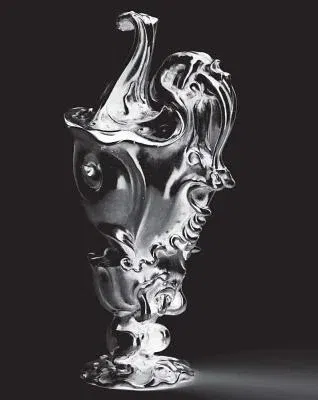Tracing the history and meaning of the 17th-century auricular style
The 17th-century auricular or lobate style--Kwabstijl, in Dutch--is one
of the most important and remarkable Dutch contributions to the
decorative arts in Europe.
Soft, smooth, undulating masses that resemble the curvature of the
cartilage of the human ear give this curious style its name. Its forms,
rendered in delicately hammered silver and gold, are strikingly modern,
suspended between human anatomy and the materiality of slugs or
mollusks. The Kwab of this fascinating book's title refers to the
quivering, blubbery mass of animal tissue and aquatic plants.
Kwab: Ornament as Art in the Age of Rembrandt traces the history and
meaning of the auricular style, with its fabulous, organic shapes, from
the work of the goldsmith Paulus van Vianen at the court of Rudolf II in
Prague to that of his brother Adam in Utrecht and Johannes Lutma in
Amsterdam. Their masterpieces were admired as high art by Rembrandt and
his pupils, who produced auricular designs themselves. The style
migrated from silver and goldsmithing to architectural ornament,
interior decoration and the decorative arts.
Designed by Irma Boom and written by Reinier Baarsen, Senior Curator of
European Furniture at the Rijksmuseum, Kwab tells the fascinating
story of this unique abstract decorative form through silver and gold
masterworks, design drawings and prints, paintings by Rembrandt,
furnishings and Cuir de Cordoue gold leather wall coverings.

